
Luba: The Hidden Gem of Equatorial Guinea
Nestled on the southern coast of Bioko Island, Luba offers a unique blend of natural beauty and cultural richness. As the second-largest city in Equatorial Guinea, it provides a peaceful retreat away from the hustle and bustle of Malabo, the capital. Luba is surrounded by lush rainforests and pristine beaches, making it a paradise for nature lovers. The crystal-clear waters and stunning landscapes are perfect for those looking to unwind and connect with nature. History buffs will appreciate Luba's colonial past, evident in its charming architecture and historical landmarks. The city's small but significant cultural sites offer a glimpse into its rich history and diverse heritage. Walking through its streets, you'll find a mix of traditional African influences and Spanish colonial remnants, creating a unique and captivating atmosphere. Luba's local cuisine is another highlight. Fresh seafood, tropical fruits, and traditional dishes provide a culinary adventure that delights the senses. The friendly locals are always eager to share their culture and traditions with visitors, making your stay in Luba a truly immersive experience. Whether you're exploring the breathtaking landscapes, delving into the city's history, or savoring the local flavors, Luba promises an unforgettable journey.
Local tips in Luba
- Visit the Luba Crater Scientific Reserve for an unforgettable nature experience.
- Hire a local guide to explore the rainforests and learn about the unique flora and fauna.
- Try the local seafood dishes at small, family-owned restaurants for an authentic culinary experience.
- Take a day trip to the nearby beaches for sunbathing and snorkeling in crystal-clear waters.
- Learn a few basic phrases in Spanish to better communicate with the locals and enhance your experience.
Luba: The Hidden Gem of Equatorial Guinea
Nestled on the southern coast of Bioko Island, Luba offers a unique blend of natural beauty and cultural richness. As the second-largest city in Equatorial Guinea, it provides a peaceful retreat away from the hustle and bustle of Malabo, the capital. Luba is surrounded by lush rainforests and pristine beaches, making it a paradise for nature lovers. The crystal-clear waters and stunning landscapes are perfect for those looking to unwind and connect with nature. History buffs will appreciate Luba's colonial past, evident in its charming architecture and historical landmarks. The city's small but significant cultural sites offer a glimpse into its rich history and diverse heritage. Walking through its streets, you'll find a mix of traditional African influences and Spanish colonial remnants, creating a unique and captivating atmosphere. Luba's local cuisine is another highlight. Fresh seafood, tropical fruits, and traditional dishes provide a culinary adventure that delights the senses. The friendly locals are always eager to share their culture and traditions with visitors, making your stay in Luba a truly immersive experience. Whether you're exploring the breathtaking landscapes, delving into the city's history, or savoring the local flavors, Luba promises an unforgettable journey.
When is the best time to go to Luba?
Iconic landmarks you can’t miss
Sofitel Malabo Sipopo Le Golf
Experience luxury and tranquility at Sofitel Malabo Sipopo Le Golf, where stunning ocean views and world-class amenities await in Equatorial Guinea.

ibis Malabo
Experience the comfort and hospitality of ibis Malabo, your gateway to the rich culture and stunning landscapes of Equatorial Guinea.

Parque Nacional de Malabo
Explore the enchanting Parque Nacional de Malabo, a lush paradise in Equatorial Guinea with rich wildlife and stunning landscapes perfect for adventurers.
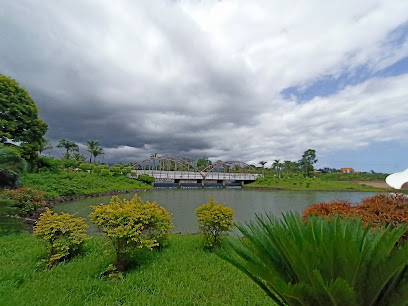
La Luna
Experience exquisite fine dining at La Luna in Malabo, where local flavors meet international culinary artistry in an elegant setting.
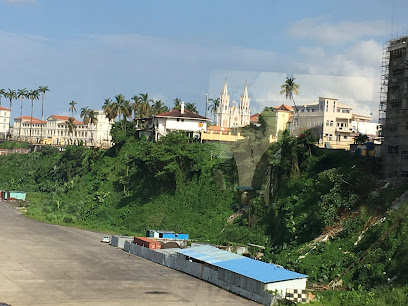
St. Elizabeth’s Cathedral
Discover the majestic St. Elizabeth’s Cathedral in Malabo, an architectural masterpiece and a vital part of Equatorial Guinea's cultural landscape.
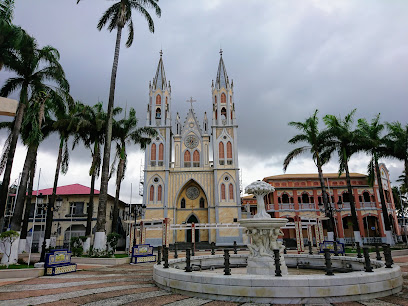
Rumbo Malabo
Explore Equatorial Guinea with Rumbo Malabo, offering personalized tours, adventures, and unforgettable experiences in stunning natural settings.
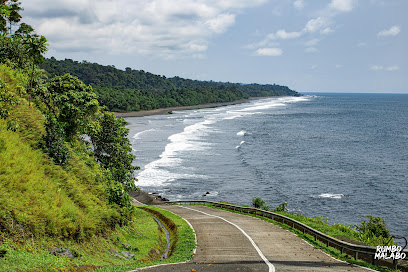
Malabo Stadium
Discover the vibrant atmosphere at Malabo Stadium, where sports and culture collide in the heart of Equatorial Guinea.
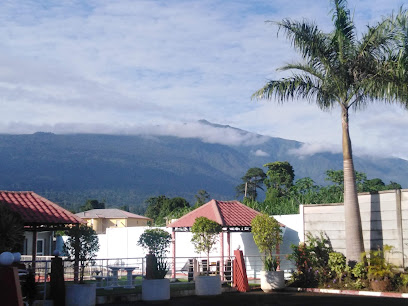
Bidji Binia
Discover the taste of authentic pizza at Bidji Binia, a must-visit restaurant in Malabo, Equatorial Guinea, perfect for food lovers and travelers alike.
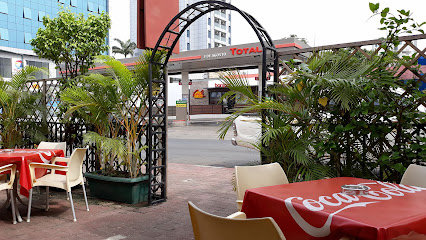
Aviator Pub and Café
Discover Aviator Pub and Café in Malabo for a unique blend of American cuisine, live music, and a warm atmosphere perfect for relaxation and entertainment.
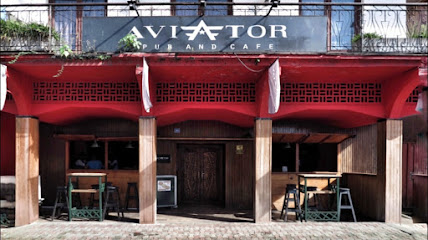
Torre de la Libertad
Experience the vibrant flavors and nightlife at Torre de la Libertad, where delicious food meets lively entertainment in the heart of Bata, Equatorial Guinea.
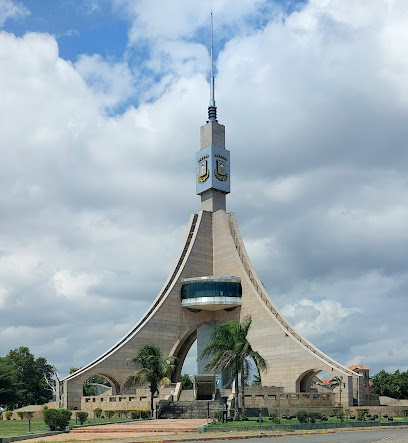
España Cultural
Discover Espaňa Cultural in Malabo, where Spanish cuisine meets Equatorial Guinean culture in a unique culinary and cultural experience.
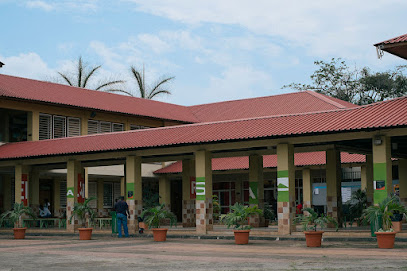
Pico Basilé
Experience the breathtaking beauty of Pico Basilé, Equatorial Guinea's highest peak, perfect for hiking, wildlife spotting, and stunning panoramic views.
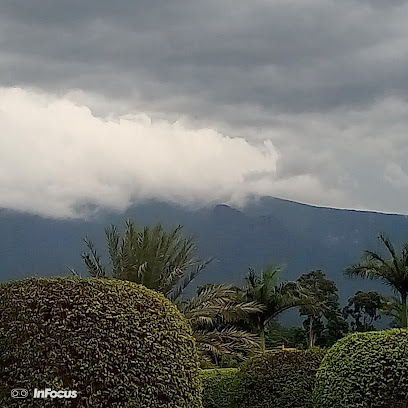
Ali Babas
Discover the rich culinary traditions of Equatorial Guinea at Ali Babas, a top restaurant in Malabo known for its delicious couscous and vibrant atmosphere.
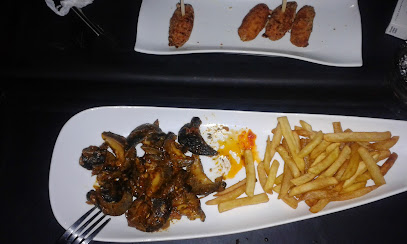
Finca Sampaka
Discover Finca Sampaka in Malabo, a serene corporate office amidst the vibrant culture and stunning landscapes of Equatorial Guinea.
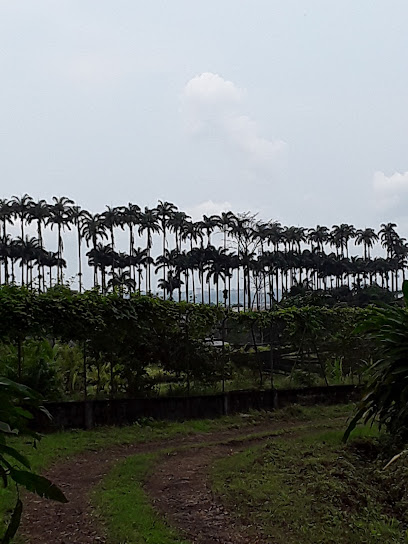
Playa de Arena Blanca
Discover the breathtaking beauty of Playa de Arena Blanca, a serene beach paradise in Equatorial Guinea perfect for relaxation and natural exploration.
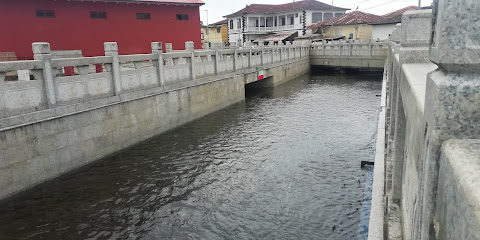
Unmissable attractions to see
Playa de Arena Blanca
Experience the serene beauty of Playa de Arena Blanca in Luba, Equatorial Guinea—a beach paradise perfect for relaxation and cultural exploration.
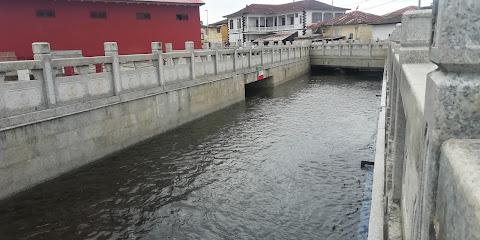
Pico Basilé
Experience the breathtaking views and vibrant biodiversity at Pico Basilé, the highest peak in Equatorial Guinea.

Pico Basilé National Park
Explore the breathtaking Pico Basilé National Park, a haven of biodiversity and stunning landscapes in Equatorial Guinea.
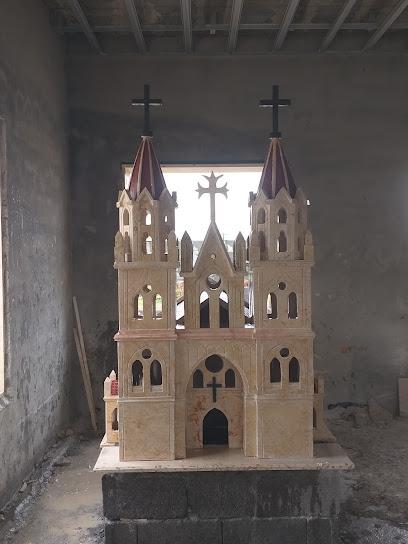
Essential places to dine
La Luna
Experience exquisite fine dining at La Luna in Malabo - where local flavors meet international culinary artistry for an unforgettable meal.
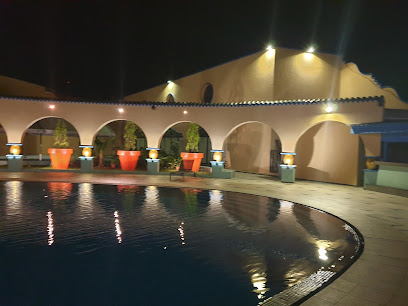
Bidji Binia
Discover Bidji Binia in Malabo - where authentic pizza meets warm hospitality in Equatorial Guinea's vibrant culinary scene.
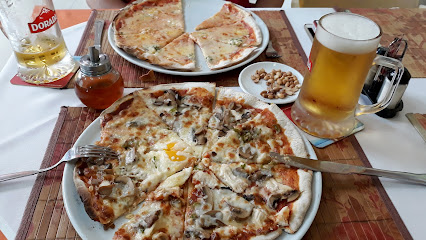
Aviator Pub and Café
Discover a lively gastropub in Malabo offering American cuisine, live music, karaoke nights, and a welcoming atmosphere perfect for tourists.
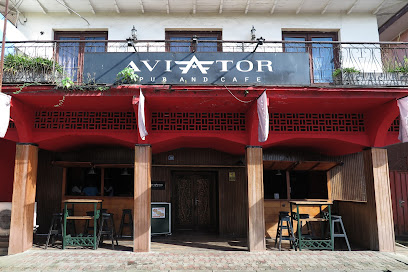
L'Atelier
Experience the rich flavors of Equatorial Guinea at L'Atelier in Malabo—where culinary tradition meets modern elegance.
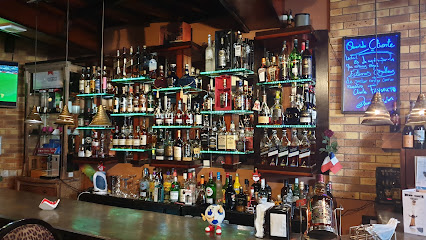
Restaurante Imagine
Discover exquisite local flavors at Restaurante Imagine in Malabo – a must-visit dining destination for every traveler.
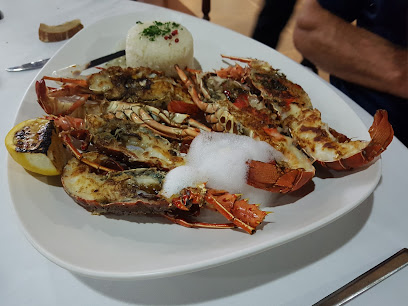
Cacahual MEGPL Club House
Experience authentic Equatorial Guinean cuisine at Cacahual MEGPL Club House in Malabo - where tradition meets taste.
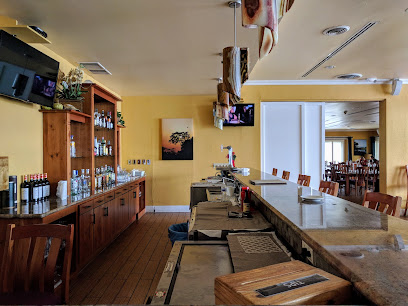
Delice de France
Discover the essence of French cuisine at Delice de France in Malabo - where every meal is an experience filled with flavor.
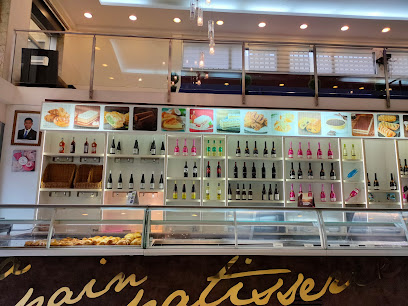
El Rancho Restaurant
Discover authentic Equatoguinean cuisine at El Rancho Restaurant in Malabo - where flavor meets tradition in a stunning setting.
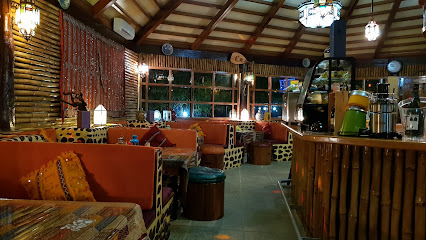
El Hard Rock Resto and Pub
Discover vibrant dining at El Hard Rock Resto and Pub in Malabo - where delicious cuisine meets lively entertainment.
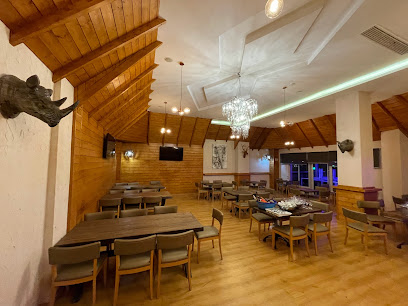
Olympus Skybar
Discover Olympus Skybar in Malabo - A rooftop dining experience with breathtaking views and vibrant nightlife.
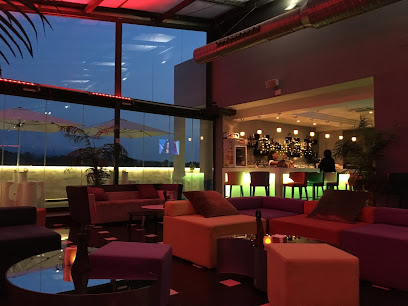
Restaurante Kalytero
Experience authentic Mediterranean cuisine at Restaurante Kalytero in Malabo - where every meal is a celebration of flavor.
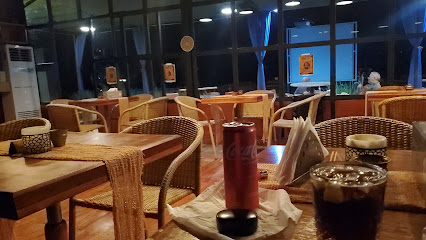
Galambo - Comida Rápida - Edificio Muankaban
Discover the authentic taste of Equatorial Guinea at Galambo - Comida Rápida in Malabo, where fast food meets local flavor.
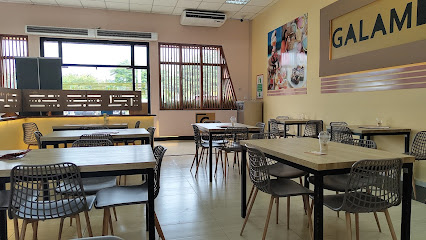
Restaurante Terraza D'Ambo
Discover authentic Equatorial cuisine at Restaurante Terraza D'Ambo in Malabo with stunning views and exquisite dishes.
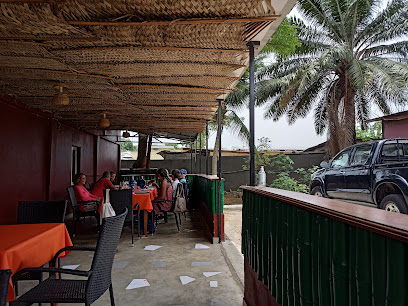
Restaurante L’Oriental
Experience authentic Equatorial Guinean cuisine at Restaurante L’Oriental, where every meal is a celebration of local flavors and culture.
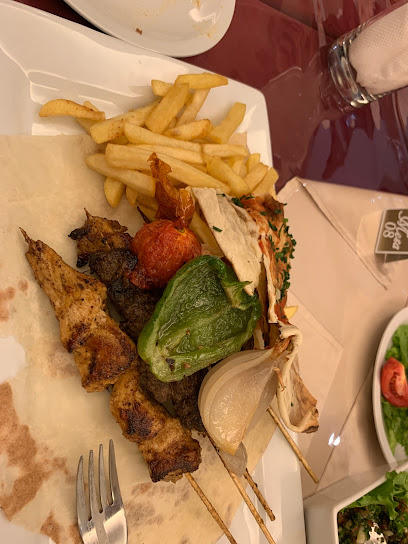
Lucy - Ethiopian Restaurant
Experience authentic Ethiopian cuisine at Lucy - Ethiopian Restaurant in Malabo; indulge in rich flavors, warm hospitality, and cultural dining traditions.
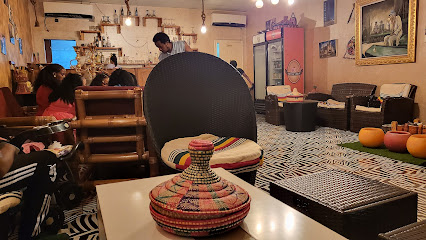
Markets, malls and hidden boutiques
Unicasa
Discover the essence of beauty at Unicasa, Malabo's top health and beauty shop, offering a wide selection of cosmetics and perfumes.
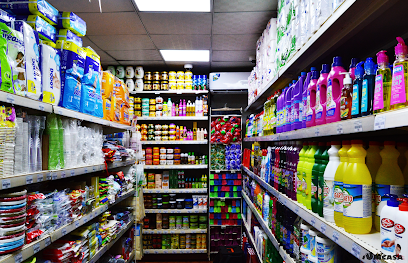
Caba Market
Explore Caba Market: Malabo's bustling supermarket offering local produce, snacks, and a taste of Equatorial Guinea's vibrant culture.
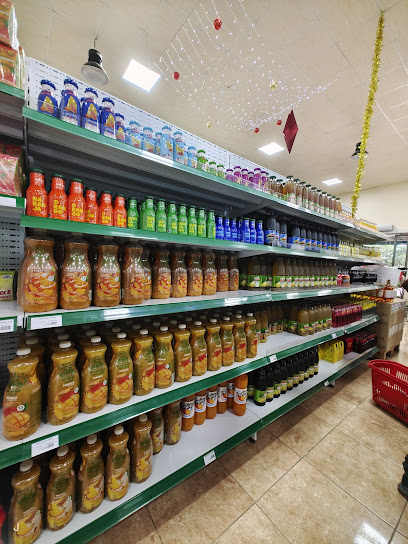
kim mall istanbul en malabo
Explore Kim Mall in Malabo for an unforgettable shopping experience filled with vibrant fashion and local flair in Equatorial Guinea.

Muankaban (Minimercado)
Explore Muankaban Minimercado in Malabo for a unique shopping experience filled with local and international flavors.
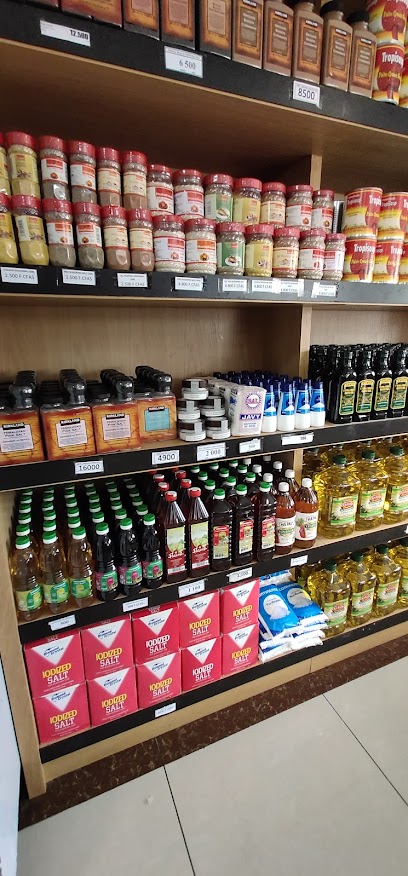
Guinaco
Visit Guinaco in Malabo for a delightful experience of local flavors and fresh produce, truly embodying the heart of Equatorial Guinea.
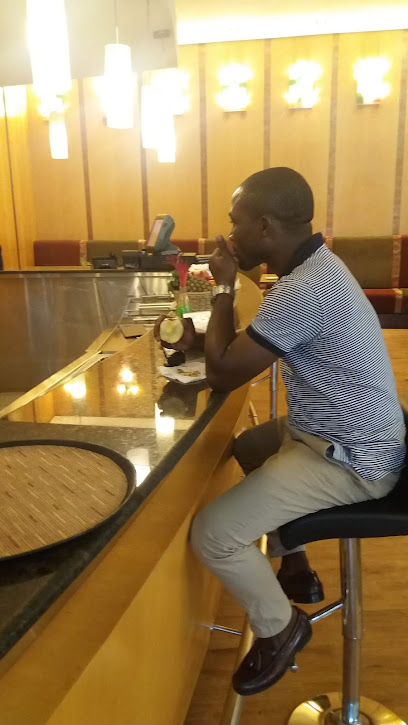
Ventage Comercial
Explore Ventage Comercial in Malabo, where local craftsmanship meets contemporary design in a vibrant home goods store.
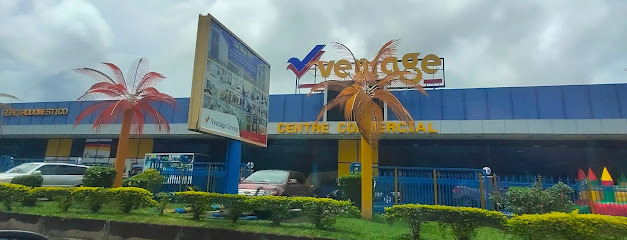
gavarishop
Discover the best of Malabo shopping at Gavarishop, where local charm meets international variety in clothing, groceries, and more.
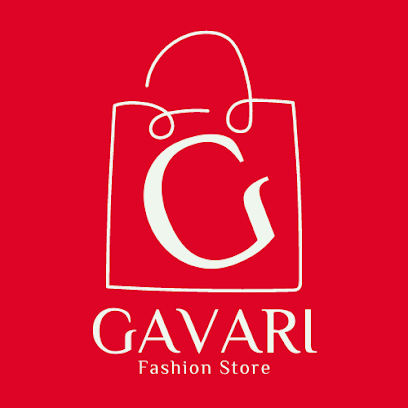
Tienda NÚRIA
Discover the finest home goods at Tienda NÚRIA in Malabo, where style meets quality for every home and traveler.
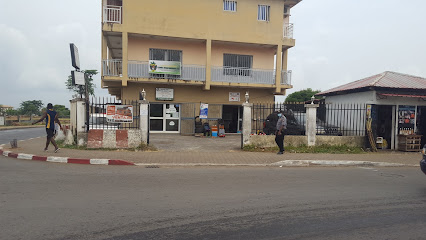
Ventage Casa
Explore unique home goods and local craftsmanship at Ventage Casa in Malabo, Equatorial Guinea—a must-visit for discerning travelers.

TIENDA EN LÍNEA LA CASA KO
Explore Tienda en Línea La Casa KO for exquisite formal wear that embodies elegance and style in Equatorial Guinea.

Dulces de Guinea
Experience the taste of Equatorial Guinea at Dulces de Guinea, where every cookie tells a story of local flavor and tradition.
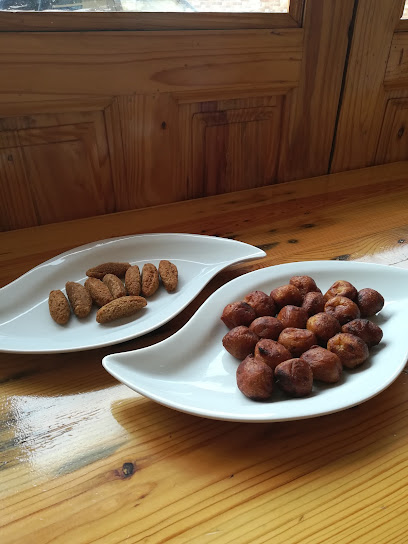
Ciber Banapá
Explore Ciber Banapá in Malabo for unique home goods that celebrate Equatorial Guinea's rich culture and craftsmanship.
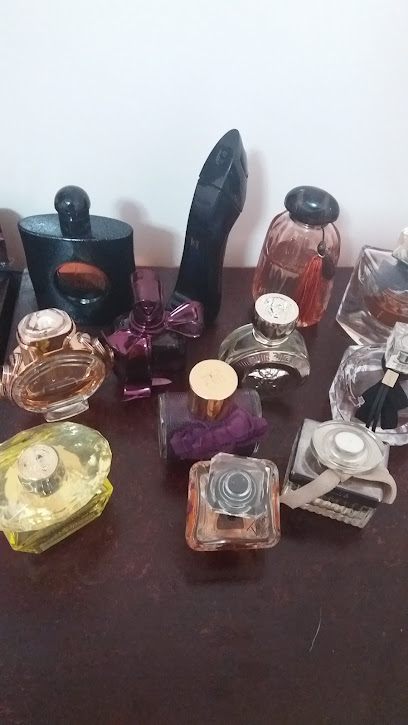
CADOSBE SHIP CHANDLER EQUATORIAL GUINEA S.L
Experience the convenience of shopping at Cadosbe Ship Chandler in Malabo, your go-to destination for essential supplies and local goods.

CERAMICO
Explore CERAMICO in Malabo for a unique selection of handcrafted home goods and authentic Equatorial Guinean culture.
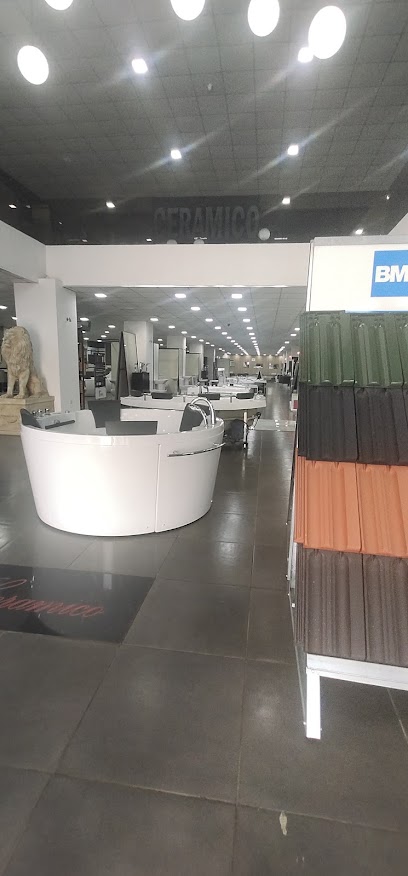
Mirinda
Discover the convenience of Mirinda in Malabo, where essential goods meet local flavors for an unforgettable shopping experience.

Essential bars & hidden hideouts
Aviator Pub and Café
Experience the vibrant atmosphere of Aviator Pub and Café in Malabo, where delicious American cuisine meets live entertainment for an unforgettable night out.
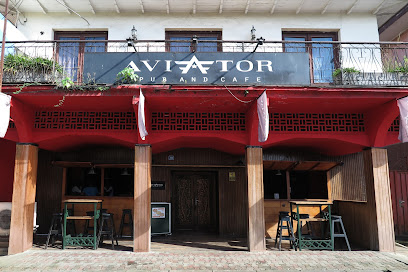
SAKOGE SL
Discover the lively ambiance and diverse drink selection at Sakoge SL, a must-visit bar in the heart of Malabo, Equatorial Guinea.
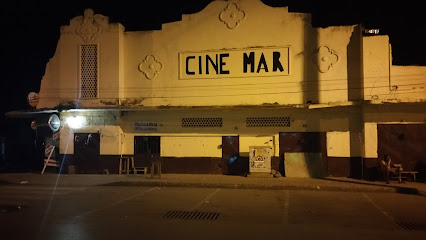
IMANI LOUNGE MALABO
Discover the vibrant flavors and inviting atmosphere of IMANI LOUNGE in Malabo, where culinary excellence meets cultural charm.
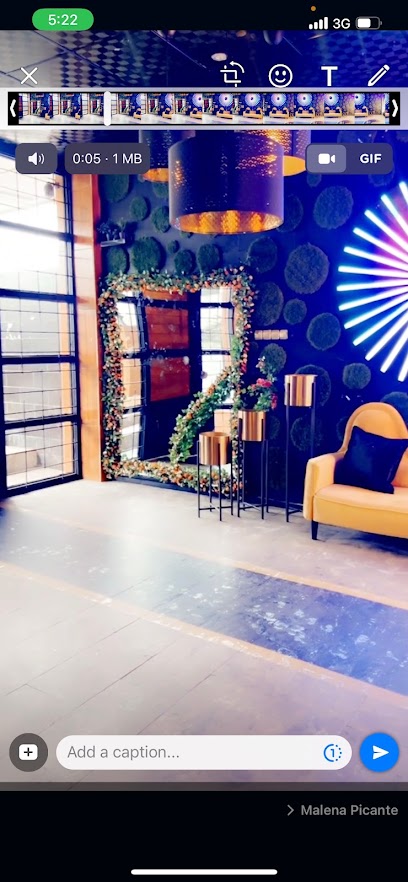
Bar Baney
Experience the vibrant culture of Malabo at Bar Baney, where refreshing drinks meet local heritage in a welcoming atmosphere.
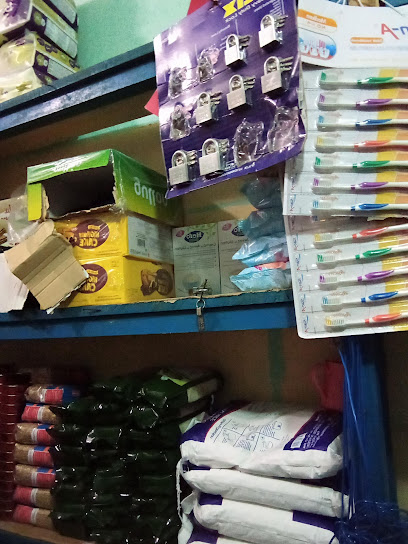
Garden Lounge
Discover the serene ambiance of Garden Lounge in Malabo, where lush surroundings meet delightful drinks for a perfect relaxing escape.
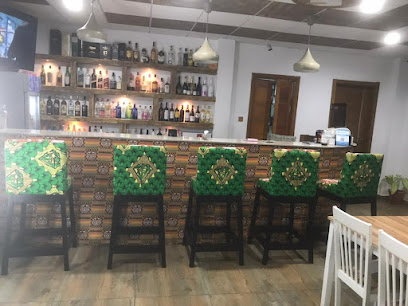
Hookah Paradise
Experience the vibrant nightlife of Malabo at Hookah Paradise, your go-to cocktail bar for exotic drinks and a relaxing atmosphere.
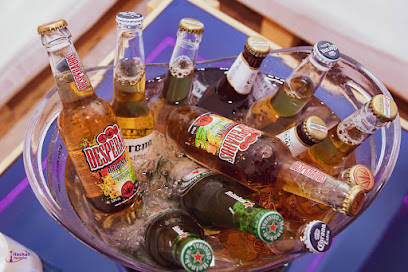
CAYUCO LOUNGE BAR
Discover the vibrant Cayuco Lounge Bar in Riaba, Equatorial Guinea - a perfect blend of relaxation, entertainment, and local flavor.
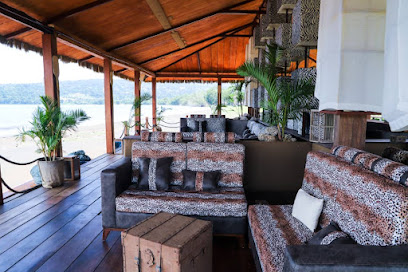
FACCIA LUNA LOUNGE
Discover the vibrant nightlife at FACCIA LUNA LOUNGE in Malabo, where excellent drinks and a lively atmosphere await you.
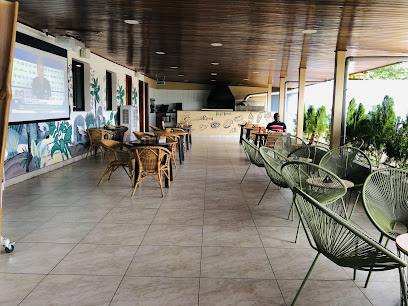
Vicatana,Malabo, Guinea Ecuatorial
Experience the cozy charm of Vicatana, a vibrant lounge in Malabo where locals and tourists unite over drinks and conversation.

La Isla Bonita
Discover the vibrant atmosphere of La Isla Bonita in Malabo, where delicious drinks and lively entertainment await you.
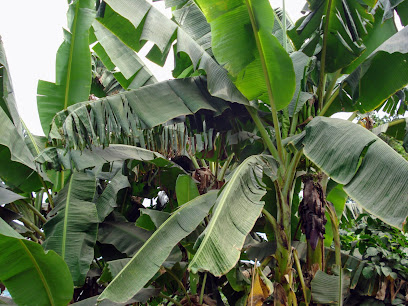
Kistal Lounge Malabo
Experience the vibrant nightlife of Malabo at Kistal Lounge, where delicious cocktails and live entertainment await in a chic atmosphere.
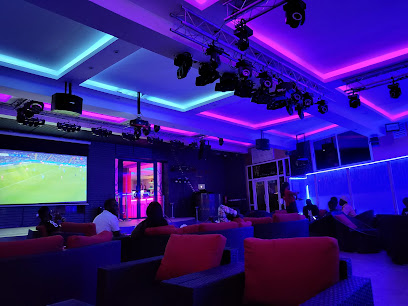
Zona Zero Malabo, Guinea Ecuatorial
Discover the lively nightlife of Zona Zero Malabo, a vibrant bar tabac offering local drinks and a welcoming atmosphere in Equatorial Guinea.
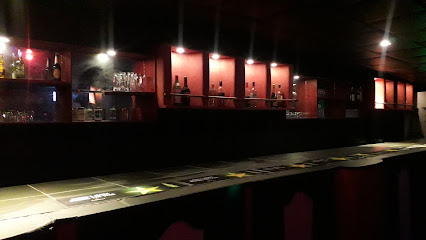
Cafe
Discover the heart of Malabo at this charming café, where local flavors meet warm hospitality for an unforgettable experience.
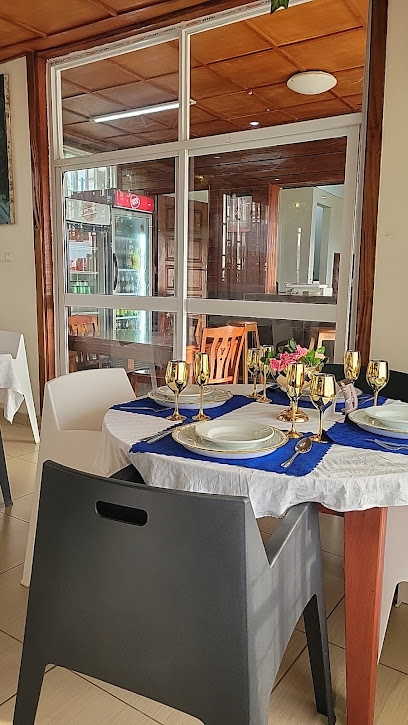
Bar Restaurant NSORK
Experience the vibrant nightlife of Malabo at Bar Restaurant NSORK, where local flavors and refreshing drinks come together in a lively atmosphere.

La Bamba
Experience the vibrant nightlife of Malabo at La Bamba, a bar that embodies the local culture and invites you to unwind and connect.

Local Phrases
-
- HelloMba'e
[Mba-eh] - GoodbyeAdios
[Ah-dee-ohs] - YesEhe
[Eh-heh] - NoAha
[Ah-hah] - Please/You're welcomeMbasogo
[Mbah-soh-goh] - Thank youMolonge
[Moh-lohn-geh] - Excuse me/SorryOndoh
[Ohn-doh] - How are you?Ijambo?
[Ee-jahm-boh] - Fine. And you?Muyembe. Nde wewe?
[Moo-yehm-beh. N-deh weh-weh] - Do you speak English?Osemesa Ingles?
[Oh-seh-meh-sah Een-gleh-s] - I don't understandNdasalagha
[N-dah-sah-lah-gah]
- HelloMba'e
-
- I'd like to see the menu, pleaseNzalangue nze menu, mbasogo
[N-zah-lahn-geh n-zeh meh-noo, mbah-soh-goh] - I don't eat meatNjola be bese
[N-joh-lah beh beh-seh] - Cheers!Elangue!
[Eh-lahn-gweh] - I would like to pay, pleaseNzalangue nze tala, mbasogo
[N-zah-lahn-geh n-zeh tah-lah, mbah-soh-goh]
- I'd like to see the menu, pleaseNzalangue nze menu, mbasogo
-
- Help!Mongui!
[Moh-ngwee!] - Go away!Oyanga!
[Oh-yah-ngah!] - Call the Police!Oyemele ngue Polisia!
[Oh-yeh-meh-leh ng-weh Poh-lees-yah!] - Call a doctor!Oyemele ngue doktore!
[Oh-yeh-meh-leh ng-weh dohk-toh-reh!] - I'm lostNjole be mona
[N-joh-leh beh moh-nah] - I'm illNjole be mona
[N-joh-leh beh moh-nah]
- Help!Mongui!
-
- I'd like to buy...Nzalangue nze kala...
[N-zah-lahn-geh n-zeh kah-lah...] - I'm just lookingNpila nze ndakala
[N-pee-lah n-zeh n-dah-kah-lah] - How much is it?Bekala ngue?
[Beh-kah-lah ng-weh?] - That's too expensiveNgue tolo bekala
[Ng-weh toh-loh beh-kah-lah] - Can you lower the price?Osemele ngue be bekala?
[Oh-seh-meh-leh ng-weh beh beh-kah-lah?]
- I'd like to buy...Nzalangue nze kala...
-
- What time is it?Ngue nkase?
[Ng-weh n-kah-seh?] - It's one o'clockNgue na oka
[Ng-weh nah oh-kah] - Half past (10)Nkase ya ndongondongo (10)
[N-kah-seh yah n-dohng-ohn-dohng-ohn-dohng-ohn-goh (10)] - MorningLepela
[Leh-peh-lah] - AfternoonNkumbe
[N-koom-beh] - EveningNkulu
[N-koo-loo] - YesterdayNkume
[N-koo-meh] - TodayNze
[N-zeh] - TomorrowNnande
[N-nahn-deh] - 1Moja
[Moh-jah] - 2Mbili
[M-bee-lee] - 3Tatu
[Tah-too] - 4Nne
[N-neh] - 5Tano
[Tah-noh] - 6Sita
[See-tah] - 7Saba
[Sah-bah] - 8Nane
[Nah-neh] - 9Kenda
[Ken-dah] - 10Kumi
[Koo-mee]
- What time is it?Ngue nkase?
-
- Where's a/the...?Nkasa...
[N-kah-sah...] - What's the address?Ngue nkase ya direksion?
[Ng-weh n-kah-seh yah dee-rek-see-ohn?] - Can you show me (on the map)?Osemele ngue be montrame (na map)?
[Oh-seh-meh-leh ng-weh beh mohn-trah-meh (nah map)?] - When's the next (bus)?Ngue nkase ya nguekambe (bas)?
[Ng-weh n-kah-seh yah ng-weh-kahm-beh (bahs)?] - A ticket (to ....)Nkase ya billete (na ....)
[N-kah-seh yah bee-yeh-teh (nah ....)]
- Where's a/the...?Nkasa...
History of Luba
-
Before the arrival of European colonizers, the area now known as Luba was inhabited by the indigenous Bubi people. The Bubi are believed to have settled in the region around the first millennium AD. They were predominantly agrarian, with a society structured around clans and led by chiefs known as 'botuku'. The Bubi people practiced traditional religions and had a rich oral history passed down through generations.
-
Equatorial Guinea, including Luba, came under Spanish control in the late 18th century. The Spanish colonizers established plantations in Luba, utilizing forced labor from both the local Bubi population and imported African slaves. The town of Luba itself grew as a small colonial outpost with administrative buildings and trading posts. The colonial period also saw the introduction of Christianity, with missions established to convert the local population.
-
During the 19th and early 20th centuries, Luba became an important port town due to its strategic location on the island of Bioko. It served as a hub for the export of cocoa, coffee, and timber, which were the main economic activities of the region. The development of port facilities and infrastructure boosted the local economy and led to increased interactions with the outside world, though often at the cost of exploiting local resources and labor.
-
Equatorial Guinea gained independence from Spain on October 12, 1968. The post-independence period was marked by political instability and economic challenges. In Luba, as in other parts of the country, the transition brought significant changes. The town experienced phases of development and neglect depending on the political climate. The discovery of oil reserves in the 1990s brought a new economic boom to the region, including Luba, leading to infrastructural improvements and increased foreign investment.
-
Today, Luba is known for its rich cultural heritage. The influence of the indigenous Bubi culture can still be seen in local traditions, festivals, and crafts. The town hosts several cultural events that celebrate its history and diversity. The blend of colonial architecture and modern buildings provides a unique glimpse into the past and present. Visitors can explore historical sites, local markets, and natural attractions like the nearby Luba Crater Scientific Reserve, which offers insights into the region's biodiversity and conservation efforts.
Luba Essentials
-
Luba is located on Bioko Island in Equatorial Guinea. The nearest international airport is Malabo International Airport (SSG), which is about 50 kilometers away from Luba. From the airport, you can hire a taxi or rent a car to reach Luba, which typically takes about an hour by road. There are also minibuses (known locally as 'colectivos') that travel between Malabo and Luba. Ferries might also be available, although schedules can be irregular.
-
Luba is a relatively small town, and many attractions are within walking distance. For longer trips, taxis are readily available and can be hired for a fixed fare. Colectivos are minibuses that serve as the local public transportation and are a cost-effective way to get around. Renting a car is also an option, but be cautious of varying road conditions.
-
The official currency of Equatorial Guinea is the Central African CFA Franc (XAF). Credit cards are accepted in some hotels, restaurants, and larger stores, but it is advisable to carry cash, especially for smaller establishments and local markets. ATMs are available in Luba, but it is wise to withdraw sufficient cash in Malabo before traveling.
-
Luba is generally a safe destination for tourists, but standard precautions should be taken. Avoid walking alone at night, especially in poorly lit or unfamiliar areas. Petty crime, such as pickpocketing, can occur in crowded places, so keep an eye on your belongings. There are no specific high-crime areas targeting tourists, but always stay vigilant.
-
In case of emergency, dial 112 for immediate assistance. Luba has a local police station and medical facilities, but for serious medical emergencies, it may be necessary to travel to Malabo. Ensure you have travel insurance that covers medical emergencies. Pharmacies in Luba can provide over-the-counter medications for minor health issues.
-
Fashion: Do dress modestly; light and breathable clothing is recommended due to the humid climate. Avoid wearing very revealing attire. Religion: Do respect local customs and traditions. When visiting religious sites, dress conservatively and remove your shoes if required. Public Transport: Do be polite and courteous to drivers and fellow passengers. Don't eat or drink on public transport. Greetings: Do greet people with a handshake. A friendly 'Buenos días' (Good morning) or 'Buenas tardes' (Good afternoon) is appreciated. Eating & Drinking: Do try local dishes and accept food offerings graciously. Don't refuse hospitality as it is considered impolite.
-
To experience Luba like a local, visit the local markets where you can buy fresh produce and traditional goods. Engage with locals, as they are often friendly and willing to share stories about the town's history and culture. Don't miss visiting the beautiful beaches and nearby natural attractions like the Luba Crater Scientific Reserve. For a unique experience, participate in local festivals and traditional celebrations if your visit coincides with one.
Nearby Cities to Luba
-
Things To Do in Malabo
-
Things To Do in Limbe
-
Things To Do in Buea
-
Things To Do in Tiko
-
Things To Do in Douala
-
Things To Do in Kribi
-
Things To Do in Calabar
-
Things To Do in Edea
-
Things To Do in Uyo
-
Things To Do in Nkongsamba
-
Things To Do in Port Harcourt
-
Things To Do in Santo Antonio
-
Things To Do in Mbini
-
Things To Do in Mamfe
-
Things To Do in Dschang








